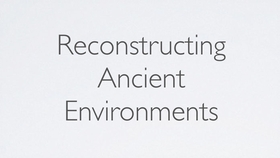Unlocking the Secrets of Long-Tail Keywords: How to Harness Their Power for SEO Success
#### Understanding Long-Tail KeywordsLong-tail keywords are phrases that are typically longer and more specific than more commonly searched keywords. They u……
#### Understanding Long-Tail Keywords
Long-tail keywords are phrases that are typically longer and more specific than more commonly searched keywords. They usually consist of three or more words and are less competitive, making them a goldmine for SEO practitioners and content creators. For instance, instead of targeting a broad term like "shoes," a long-tail keyword might be "best running shoes for flat feet."
The significance of long-tail keywords lies in their ability to attract highly targeted traffic. Users searching for these specific phrases are often further along in the buying cycle, meaning they have a clearer intent and are more likely to convert into customers. By incorporating long-tail keywords into your content strategy, you can improve your chances of ranking higher in search engine results pages (SERPs) and reaching the right audience.
#### Why Long-Tail Keywords Matter for SEO
In the world of SEO, competition can be fierce, especially for short, generic keywords. Long-tail keywords provide a strategic advantage by allowing you to target niche markets with less competition. This means that even if your website is relatively new or has low domain authority, you can still achieve visibility by optimizing for these specific phrases.
Moreover, long-tail keywords often have higher conversion rates. Since they cater to specific user intents, visitors who arrive at your site via these keywords are more likely to find exactly what they are looking for. For example, a user searching for "eco-friendly yoga mats for beginners" is likely looking to make a purchase, as opposed to someone searching for "yoga mats," who may just be gathering general information.
#### How to Find Effective Long-Tail Keywords

Finding the right long-tail keywords requires a combination of research tools and an understanding of your target audience. Here are some effective methods to uncover valuable long-tail keywords:
1. **Use Keyword Research Tools:** Platforms like Google Keyword Planner, Ahrefs, and SEMrush can help you identify long-tail keywords related to your niche. These tools provide insights into search volume, competition, and variations of keywords.
2. **Analyze Search Queries:** Look at the search queries that bring visitors to your site. Google Search Console can provide data on which long-tail keywords are already driving traffic, allowing you to optimize those pages further.
3. **Explore Related Searches:** When you type a keyword into Google, the search engine often suggests related searches at the bottom of the page. These can be excellent sources of long-tail keywords.
4. **Utilize Forums and Social Media:** Platforms like Reddit, Quora, and relevant Facebook groups can reveal the specific questions and phrases that your target audience is using. This can help you tailor your content to meet their needs.

#### Optimizing Your Content for Long-Tail Keywords
Once you have identified your long-tail keywords, the next step is to optimize your content. Here are some best practices:
- **Incorporate Keywords Naturally:** Ensure that your long-tail keywords fit seamlessly into your content. Overstuffing keywords can lead to penalties from search engines, so aim for a natural flow.
- **Create Targeted Content:** Develop content that specifically addresses the long-tail keyword's intent. If the keyword is about "best vegan protein powder for athletes," create a comprehensive guide that covers various options, benefits, and user reviews.
- **Use Headings and Subheadings:** Organize your content with clear headings and subheadings that include your long-tail keywords. This not only helps with SEO but also improves readability for users.

- **Optimize Meta Tags:** Don’t forget to include your long-tail keywords in your title tags, meta descriptions, and URL slugs. This helps search engines understand the context of your content.
#### Measuring the Success of Your Long-Tail Keyword Strategy
To determine the effectiveness of your long-tail keyword strategy, track key performance indicators (KPIs) such as organic traffic, bounce rates, and conversion rates. Tools like Google Analytics can provide insights into how well your content is performing and whether your long-tail keywords are driving the desired results.
In conclusion, long-tail keywords are an essential component of a successful SEO strategy. By understanding their importance, conducting thorough research, optimizing your content effectively, and measuring your results, you can unlock the full potential of long-tail keywords to enhance your online visibility and attract targeted traffic. Embrace the power of long-tail keywords today and watch your SEO efforts flourish!